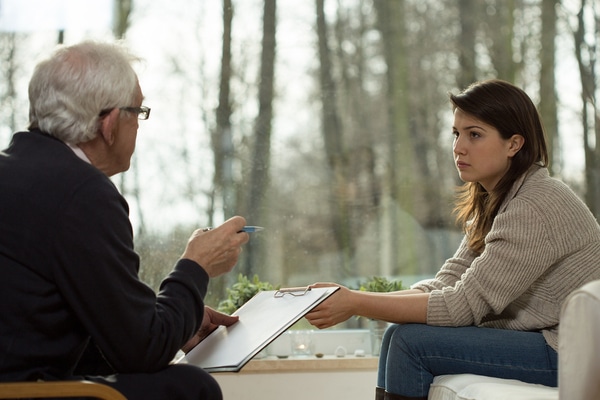 When you take that all-important first step on your road to recovery, you will find that treatment for substance abuse involves a number of different strategies. Addiction is tough to beat, which means that you will need to use all the tools at your disposal to win your battle against it. One of the tools that Harris House uses in addiction treatment is cognitive behavioral therapy, or CBT. In conjunction with other therapies, CBT provides significant benefits for you during the addiction recovery process.
When you take that all-important first step on your road to recovery, you will find that treatment for substance abuse involves a number of different strategies. Addiction is tough to beat, which means that you will need to use all the tools at your disposal to win your battle against it. One of the tools that Harris House uses in addiction treatment is cognitive behavioral therapy, or CBT. In conjunction with other therapies, CBT provides significant benefits for you during the addiction recovery process.
What Is Cognitive Behavioral Therapy?
PsychCentral defines CBT in this way:
“CBT is a short-term, goal-oriented psychotherapy treatment that takes a hands-on, practical approach to problem-solving. Its goal is to change patterns of thinking or behavior that are behind people’s difficulties, and so change the way they feel. CBT works by changing people’s attitudes and their behavior by focusing on the thoughts, images, beliefs and attitudes that are held (a person’s cognitive processes) and how these processes relate to the way a person behaves, as a way of dealing with emotional problems.“
In simple terms, CBT helps you understand that your behavior is directly linked to your thought processes. By helping you to examine your thought processes and beliefs about your addiction, CBT can help you learn to modify your thoughts, ultimately leading to different, healthier behaviors.
How CBT Works for Recovering Addicts
People struggling with addiction often become victims of their own negative thinking and destructive thought patterns. For instance, it is not uncommon for recovering addicts to have an all-or-nothing mentality about the recovery process.
This type of thinking leads to an increased probability of major relapse. Figuring that a minor misstep in the recovery process spells ultimate failure can persuade you to give up the fight and allow destructive behaviors and actions to overshadow any progress that has been made.
In a scenario like this, CBT can break the cycle of destructive thinking before it leads to destructive behavior. By helping you recognize where negative thoughts come from and how they impact actions, CBT provides you with the weapons you need to battle your own inner demons.
CBT Provides Healthy Coping Skills
The National Institute on Drug Abuse notes:
“A central element of CBT is anticipating likely problems and enhancing patients’ self-control by helping them develop effective coping strategies.”
For instance, during CBT sessions, you and your therapist will explore the positive and negative consequences of substance abuse. You will learn to discern the thought processes that lead you to the desire to abuse drugs or alcohol.
Additionally, you will learn how to foresee and avoid situations that trigger negative thoughts and cope with unavoidable situations in the best possible way. CBT arms you to succeed in your fight against addiction.
As you learn more about your own thought patterns, you acquire the problem-solving abilities you need to remain clean and sober. CBT is part of a holistic approach to addiction treatment. The life skills you learn through CBT help you not only to conquer addiction but also to handle other problems you may encounter in life.

By teaching you more about yourself, Cognitive Behavioral Therapy helps you to become the person you want to be.
CBT strengthens your understanding of self, providing you with insights into what makes you tick. It helps you to control poisonous thoughts and “stinking thinking” that sap your strength. It enables you to control your thoughts, feelings and, ultimately, your actions as well.
We’re Here to Help
Harris House offers CBT as part of its outpatient treatment plan for addiction recovery. Please contact us to discuss how we can use CBT to help you regain control over your life today.








